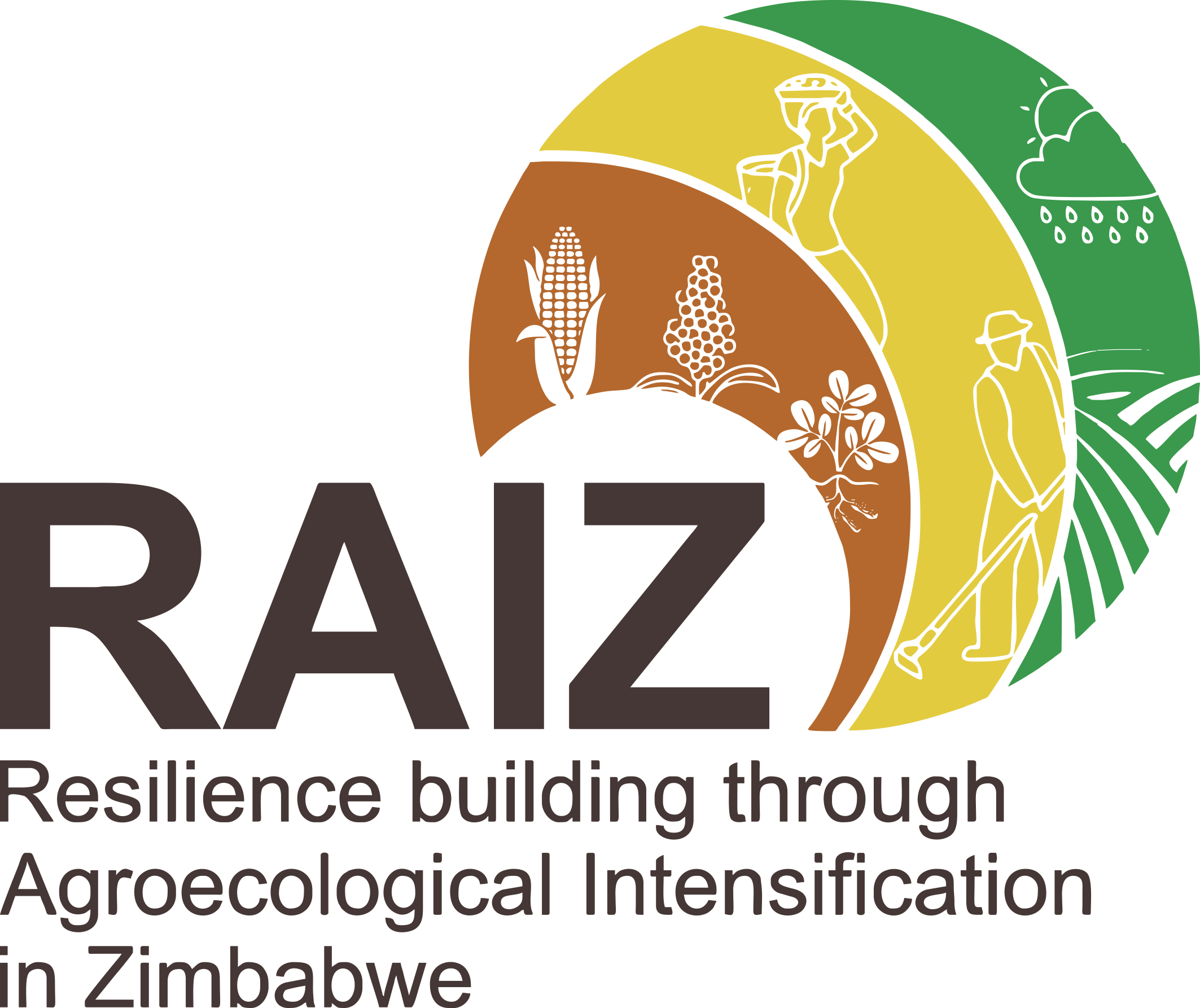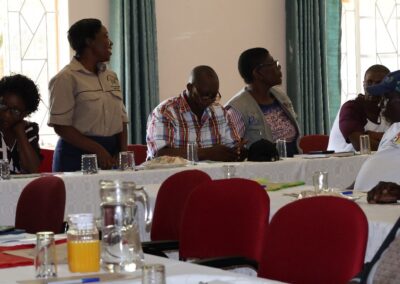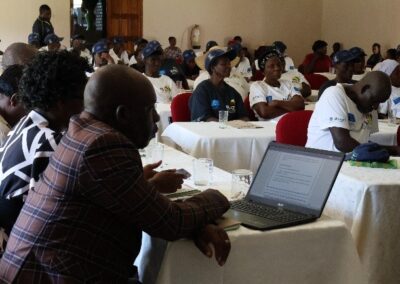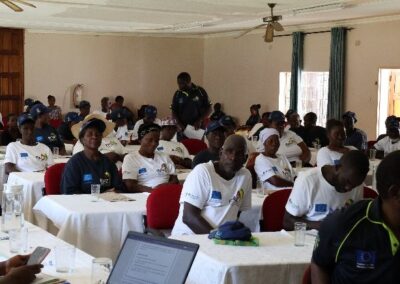7th November 2023 at Nyamakwere Lodge, Mutoko District
Resilience Building through Agroecological Intensification in Zimbabwe (RAIZ) Project partners convened a participatory workshop on the 7th on November 2023 to amplify awareness of the RAIZ project and gather valuable feedback from key stakeholders in Mutoko District. The workshop brought together a diverse range of participants, stemming from representatives from various Ministries that included: Women Affairs, Youth, Agriculture, Local Leadership; RDC; Extension Officers, RAIZ project students and farmers from Ward 10 and 13 (now referred to as ward 8). Recognizing the strategic role of agroecological approaches in tackling climate change and enhancing sustainable agriculture in arid areas, the RAIZ project implemented by CIRAD, University of Zimbabwe and CIMMYT, with funding from the European Union are undertaking research actions in the Mutoko District to produce scientific evidence to feed into agroecology policy.
District Agricultural Extension Officer – Mr Makona
Mr Makona extended his gratitude on working with the RAIZ project focused on research unlike other projects which are development oriented – and moreso the importance of scientific evidence in the agricultural sector especially evidence that can support the smallholder farmer production systems. He expressed that there is need for more efforts in the research space to ensure that we implement agronomic practices that are evidence-based, increase productivity of the smallholder farmers and more important build their resilience across the spectre of agricultural production.
District Development Coordinator Representative – Mrs Chidarikire
The DDC reiterated on the importance of working with Development Partners focused on agriculture which is the cornerstone of the Zimbabwean economy and moreso, on agricultural research. She expressed that because of the geographical location, Mutoko District is frequently affected by the impacts of climate change especially droughts; mid-season dry spells and rainfall variability – interventions that are focused on addressing climate change impacts whether through research as with this RAIZ project and/or development actions are important in the district. She also emphasised on the One-Government approach where all government departments are working together in all interventions to explore complementarity and synergies and feed into each and this is exemplary as this workshop where various government departments are represented.
Headman – Mr. Oscar Nyakabau
The presence of traditional leadership of the Headman and several village heads was critical to inform them and make them aware of the nature of the project as they are the gatekeepers of the communities.
- In his closing remarks the Headman applauded the high of women that were present at the work as farmers and reiterating that women are key in the agricultural sector and their involvement moreso, in research through the RAIZ project was very important because the knowledge accrued would strengthen climate resilience at household level.
- He also applauded the project efforts to feed into policy and the efforts of the government on fighting climate change especially through the Pfumvudza approach and of course efforts by the Extension Officers in the communities to advise the smallholder farmers.
- He was also happy that the research was done by the locals and students themselves in collaboration with farmers as they establish their experimental and demonstration plots.
- Mr Nyakabau expressed the need for feedback of the results of the research to the same farmers in similar platforms so that people can also discuss what they would have learnt through the RAIZ project.
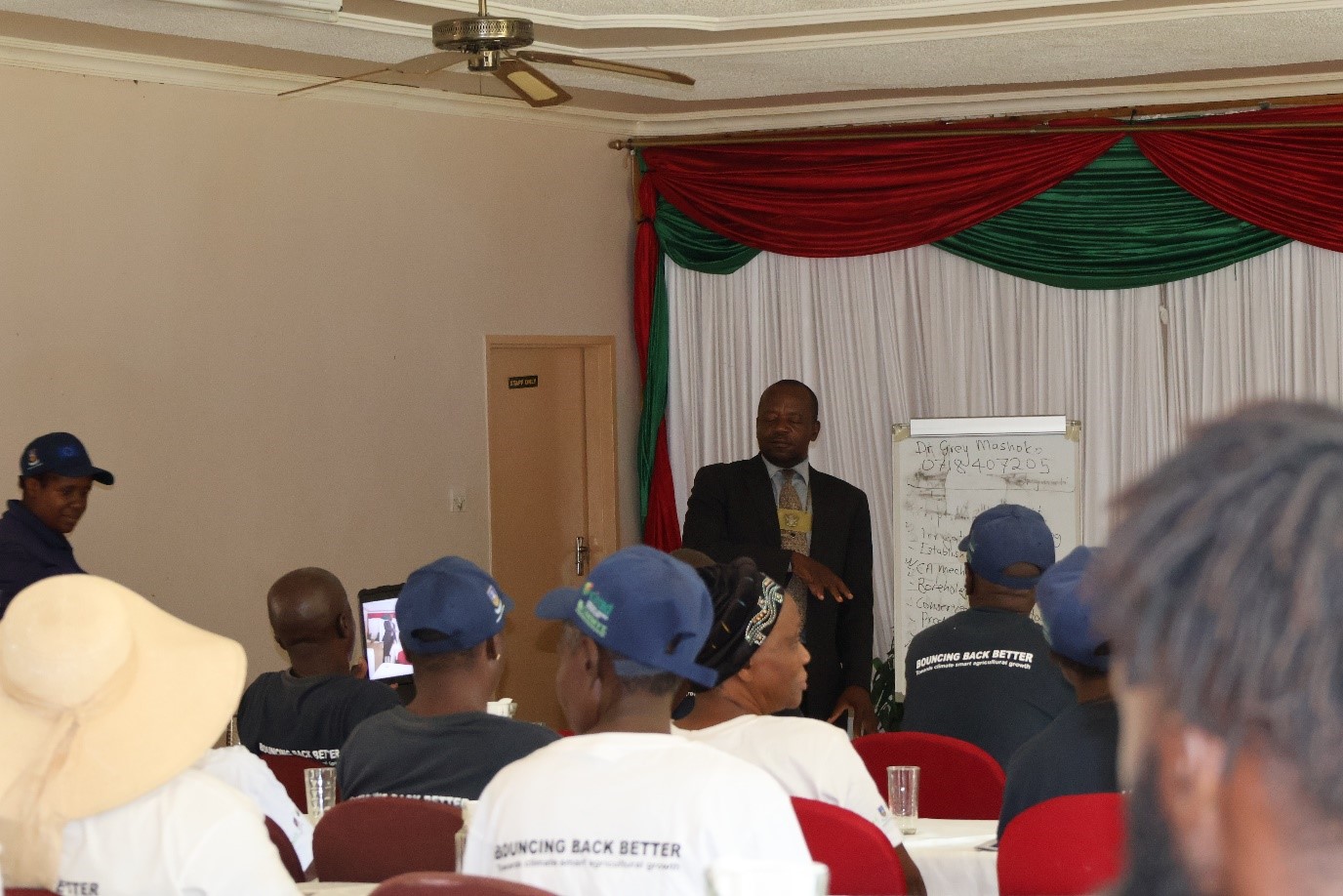
Mr. Nyakabau giving his closing remarks to conclude the workshop.
